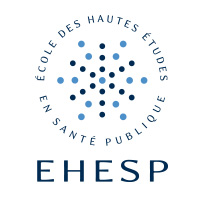What drives willingness to receive a new vaccine that prevents an emerging infectious disease? A discrete choice experiment among university students in Uganda
Résumé
Background: There is a critical need to identify the drivers of willingness to receive new vaccines against emerging and epidemic diseases. A discrete choice experiment is the ideal approach to evaluating how individuals weigh multiple attributes simultaneously. We assessed the degree to which six attributes were associated with willingness to be vaccinated among university students in Uganda.
Methods: We conducted a single-profile discrete choice experiment at Makerere University in 2019. Participants were asked whether or not they would be vaccinated in 8 unique scenarios where attributes varied by disease risk, disease severity, advice for or against vaccination from trusted individuals, recommendations from influential figures, whether the vaccine induced indirect protection, and side effects. We calculated predicted probabilities of vaccination willingness using mixed logistic regression models, comparing health professional students with all other disciplines.
Findings: Of the 1576 participants, 783 (49.8%) were health professional students and 685 (43.5%) were female. Vaccination willingness was high (78%), and higher among health students than other students. We observed the highest vaccination willingness for the most severe disease outcomes and the greatest exposure risks, along with the Minister of Health's recommendation or a vaccine that extended secondary protection to others. Mild side effects and recommendations against vaccination diminished vaccination willingness.
Interpretation: Our results can be used to develop evidence-based messaging to encourage uptake for new vaccines. Future vaccination campaigns, such as for COVID-19 vaccines in development, should consider acknowledging individual risk of exposure and disease severity and incorporate recommendations from key health leaders.
Origine : Fichiers éditeurs autorisés sur une archive ouverte
licence : CC0 - Transfert dans le Domaine Public
licence : CC0 - Transfert dans le Domaine Public



